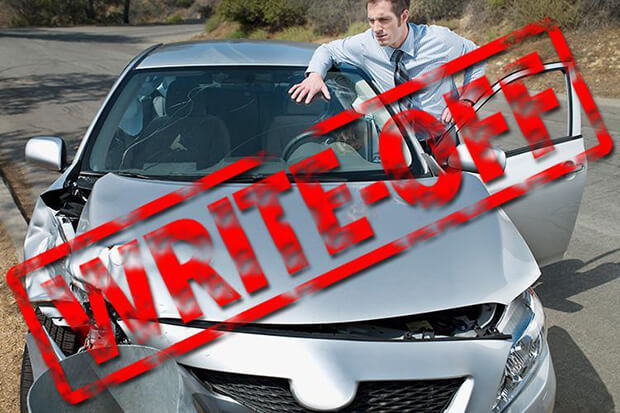Damage Assessment: When a vehicle is involved in an accident or sustains damage, an insurance adjuster assesses the extent of the damage. They inspect the vehicle, consider its pre-accident condition, and estimate the cost of repairs.
Repair Cost Evaluation: The insurance adjuster compares the estimated cost of repairs with the vehicle's ACV. The ACV is the value of the vehicle immediately before the accident, taking into account factors such as its age, mileage, condition, and market value. If the cost of repairs exceeds a certain percentage (often around 70-80%) of the ACV, the vehicle may be deemed a total loss.
Salvage Value: If the vehicle is considered a total loss, the insurance company will also evaluate the salvage value. Salvage value refers to the estimated value of the damaged vehicle if it were to be sold for parts or scrap. The salvage value is subtracted from the total loss payout to determine the final settlement amount.
Total Loss Declaration: Once it is determined that the vehicle is a total loss, the insurance company will declare it as such. This means that they will not proceed with repairs but instead offer a settlement based on the ACV minus the salvage value.
Settlement Offer: The insurance company will offer the policyholder a settlement amount based on the ACV minus the salvage value. The policyholder can choose to accept the settlement or negotiate with the insurance company if they believe the offer is insufficient.
Cumulative claims can come into play when insurance companies consider whether to write off a vehicle. Cumulative claims refer to the total amount of claims filed for a specific vehicle over a certain period of time. Insurance companies take into account the cumulative claims history of a vehicle when assessing its overall value and determining whether it is economically viable to repair or should be written off.
If a vehicle has a high history of cumulative claims, it may indicate that it has a greater risk of future accidents or damage. Insurance companies consider factors such as the frequency and severity of previous claims, as well as the cost of repairs, in their evaluation. If the cumulative claims indicate that the cost of future repairs is likely to exceed the vehicle's value, it may increase the likelihood of the insurance company deciding to write off the vehicle.
The inclusion of cumulative claims in the decision-making process helps insurance companies assess the risk and cost associated with continuing to insure a particular vehicle. However, the specific weight given to cumulative claims can vary among insurance companies, as they may have different thresholds or policies in place.
Whether to buy back a written-off vehicle and continue driving it without repairing it depends on several factors, including safety considerations, legal requirements, and personal preferences. Here are some points to consider:
Safety: If the vehicle was declared a total loss due to significant damage, it may not be safe or roadworthy. Assess the extent of the damage and consult with a professional mechanic to determine if it is safe to continue driving without repairs. The structural integrity, mechanical components, and safety features of the vehicle should be thoroughly examined.
Legal Requirements: Check the regulations in your jurisdiction regarding the use of written-off vehicles on public roads. In some cases, there may be specific restrictions or requirements for operating vehicles that have been declared total losses. Ensure that you comply with any legal obligations before considering driving the vehicle.
Insurance Coverage: If you buy back a written-off vehicle and decide not to repair it, be aware that insurance coverage may be limited or different compared to a fully functional vehicle. Insurance companies may provide reduced coverage or exclude coverage for certain damages or incidents. Review your insurance policy and consult with your insurance provider to understand the implications and potential limitations.
Value and Resale: Consider the impact on the vehicle's value and potential resale value. A written-off vehicle typically has a diminished value due to its history, and future buyers may be wary of purchasing a vehicle that has been declared a total loss.
Personal Preference and Cost: If you are comfortable with the risks and have the necessary knowledge and skills to address any potential safety issues, driving a written-off vehicle without repairs could be an option. However, weigh the cost of repairs against the cost of purchasing another vehicle. Assess whether investing in repairs would make financial sense or if it would be more economical to seek a replacement vehicle.
Ultimately, the decision to buy back a written-off vehicle and drive it without repairs depends on your personal circumstances, including safety considerations, legal requirements, insurance implications, and financial factors. It is important to make an informed decision based on these considerations and, if needed, consult with professionals such as mechanics, insurance agents, or legal advisors for guidance.
Source: Some or all of the content was generated using an AI language model


No comments:
Post a Comment